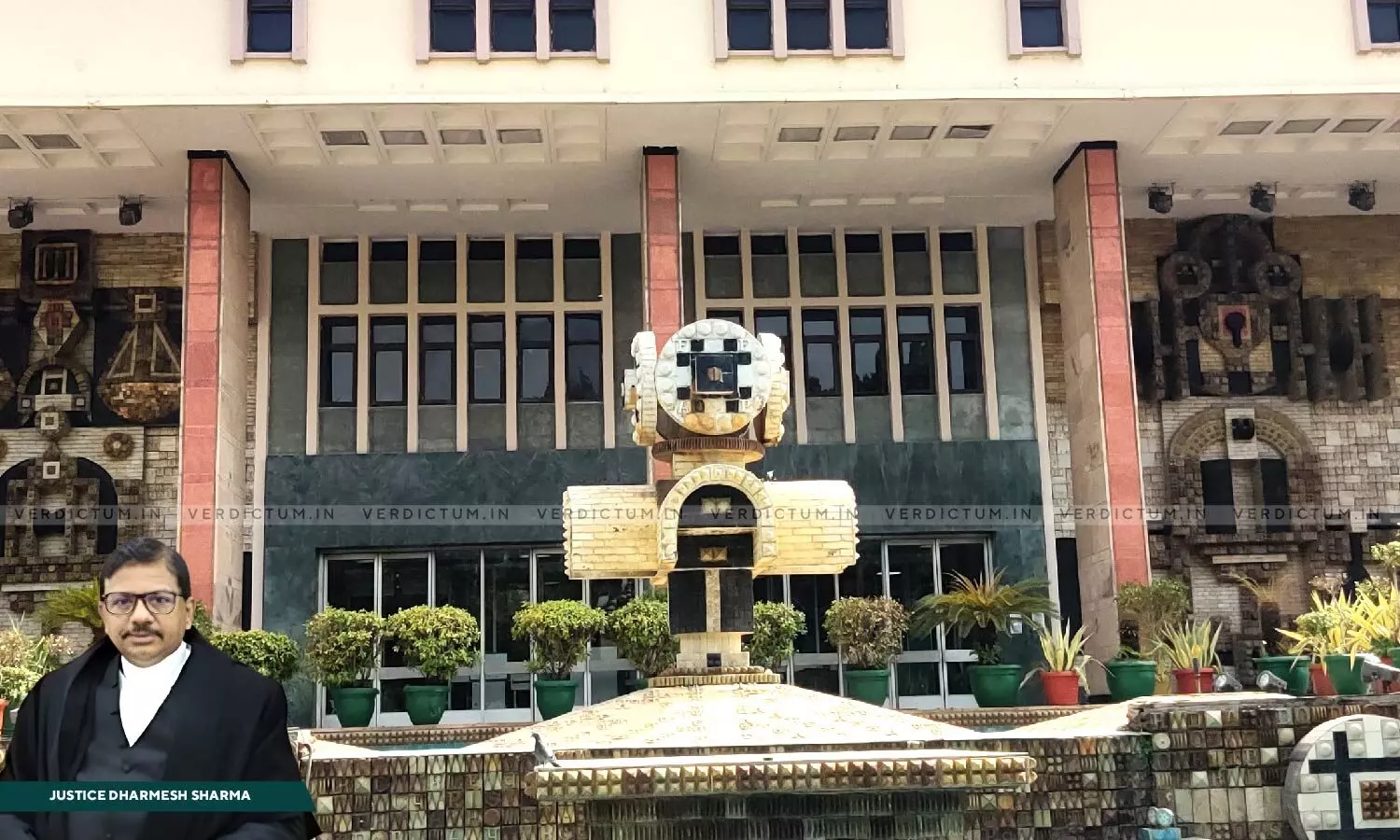
Justice Dharmesh Sharma, Delhi High Court
Utilising Jhuggi-Jhopri Structures Exclusively For Commercial Purposes: Delhi High Court Rejects Plea Seeking Suspension Of Demolition By DDA
 |
|Petitions were filed by a group of persons either individually or jointly, invoking the extraordinary jurisdiction of the High Court under Article 226 of the Constitution, seeking common reliefs.
The Delhi High Court has dismissed the Writ Petitions seeking suspension of demolition activity by the Delhi Development Authority (DDA) as well as refraining from physically evicting persons from their respective jhuggi jhopris clusters.
A batch of Petitions were filed by a group of persons either individually or jointly, invoking the extraordinary jurisdiction of the Court under Article 226 of the Constitution, seeking common reliefs.
A Single Bench of Justice Dharmesh Sharma observed, “The petitioners were found to have been utilising the subject jhuggi-jhopri structures exclusively for commercial purposes. In such a scenario, the production of documents merely indicating possession would be of no consequence in establishing entitlement to rehabilitation under the 2015 Policy. The bottom line is that findings of fact, duly arrived at by the designated authorities in accordance with the policy framework, cannot be reappreciated or interfered with in exercise of writ jurisdiction under Article 226 of the Constitution of India.”
The matters pertained to two categories of cases: (i) where the Appeals of the Petitioners were rejected on the ground that the respective jhuggi dwellers had not attained the age of majority as on the cut-off date i.e., January 1, 2015; and (ii) where the Appeals of the Petitioners were rejected by the Appellate Authority on the ground that the respective jhuggi dwellers were found to be used exclusively for commercial activities in their jhuggis at the time of the survey, which was conducted in October 2019.
Advocates Dilraj Singh Bhinder and Shantanu appeared on behalf of the Petitioners while Advocate Kritika Gupta appeared on behalf of the Respondents.
Facts of the Case
The common thread in the Petitions was that the Petitioners, along with their respective family members, claimed that they were in continuous possession and occupation of their respective jhuggi-jhopris situated at a location commonly known as Bhoomiheen Camp, Govind Puri, Kalkaji, South Delhi, which is averred to be in existence since the early 1990s. The Petitioners claimed to be migrants from various States, including Uttar Pradesh, Bihar, and West Bengal and were stated to be engaged in occupations such as factory labour, work at local shops, domestic help, and other forms of menial employment.
The grievance of the Petitioners was that the proposed demolition of their jhuggi-jhopris by the DDA is arbitrary, illegal, and in contravention of the provisions of the Delhi Slum & Jhuggi Jhopri Rehabilitation and Relocation Policy, 2015. It was contended that the said Policy contemplates in-situ rehabilitation of eligible jhuggi dwellers and lays down a comprehensive framework prescribing the procedure and criteria for determining such eligibility. It was further alleged that the DDA, by initiating steps for demolition of the JJ clusters and proceeding with physical eviction without affording due process or considering the Petitioners’ documentary evidence, is violating their constitutionally protected right to shelter.
Reasoning
The High Court after hearing the contentions of the counsel, remarked, “The present two writ petitions pertain to cases wherein the claims of the petitioners were rejected by the EDC, and the said rejection was upheld by the Appellate Authority upon the petitioners’ preferring appeals. As explicitly envisaged under Part-B of the 2015 Policy, the decision of the Appellate Authority, once approved by the competent authority, attains finality and is binding.”
The Court further noted that findings of fact have been duly recorded by the Eligibility Determination Committee (EDC), and the same have been affirmed by the Appellate Authority after providing due opportunity to the Petitioners, including confronting them with videographic evidence of the site in question.
“Without further ado, the aforesaid findings on facts in each case cannot be challenged in the instant writ petitions”, it said.
Accordingly, the High Court dismissed the Writ Petitions.
Cause Title- Arun Das v. Delhi Development Authority & Anr. (Neutral Citation: 2025:DHC:4666)
Appearance:
Petitioner: Advocates Dilraj Singh Bhinder, Shantanu, Sujoy Chatterjee, Priyadarshi Banerjee, Kavya Agrawal, and Rishabh.
Respondents: Advocates Kritika Gupta, Anuj Chaturvedi, Harshita Maheshwari, Richa Dhawan, Pawan Karan Deo, and Kamakshi Sehgal.